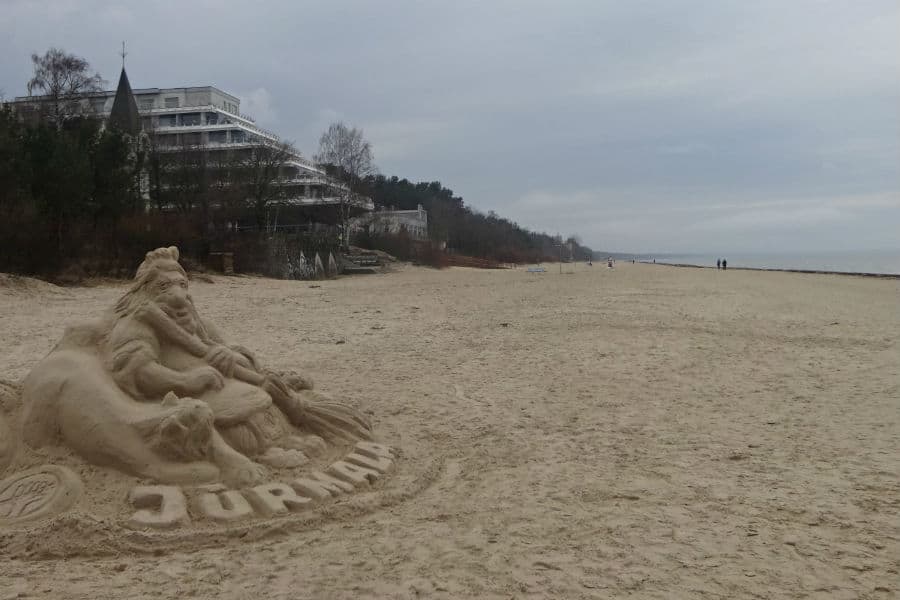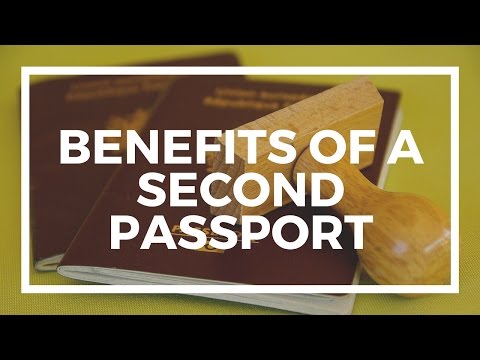Getting Second Residency in Latvia | Real Estate or Business
October 17, 2022
Dateline: Riga, Latvia
As they say: you snooze, you lose.
Truer words cannot be spoken when it comes to international diversification and the topics we discuss here. One of those topics, for example, is the importance of getting a second residency and working toward a second citizenship.
Here in the Baltic states, Latvia has been one of the most aggressive in offering second residency to foreigners who buy Latvian real estate or start a business to help grow the Latvian economy.
After all, the place was totally in the tank just a few short years ago. I remember sitting in Brussels in 2011, watching propaganda pieces on Western European television about how the economy in Latvia was so bad everyone was eating out of dumpsters and living in hovels.
Today, the story is different. Riga’s Old Town is charming, even more so than that of Vilnius, Lithuania to the south. Plus, the city has diversity. And the country is on the right track, with 4.5% GDP growth for this year, the highest in the Baltics (although down from 5.6% in 2012 and a remarkable 14% back in the mid-1990s).
And while Latvia has been one of the easiest countries in Europe to get a second residency visa for a while now, the requirements just got more difficult. The government figured it had plenty of people applying and could afford to raise the stakes.
This is why you should take ACTION to establish a second residency or claim a second citizenship when it’s available to you.
The options you have today may not exist tomorrow. That’s why you should take action now.
Fortunately, three second residency programs are still available. Working toward eventual Latvian citizenship is also still an option. Unfortunately, some of the requirements have gotten more stringent.
The benefits of becoming a resident of Latvia
As a member of the European Union, Latvia offers special benefits that other residency programs do not. For instance, if you are not a citizen of a country that receives visa-free access to Europe’s borderless Schengen area, with second residence in Latvia you will be able to travel freely throughout Switzerland and the EU.
Pretty much all of Europe — except Ireland and the UK — is your playground. This is especially a benefit for those who do not enjoy visa-free access to Europe already.
Latvia also allows those living there to qualify for Latvian citizenship after ten years of residence. With citizenship comes the opportunity to obtain an EU passport, a very valuable passport that offers excellent travel privileges throughout the world. This is why almost all of the 7,000 applicants to Latvia’s investor visa program were Russian, Kazakh, or Chinese.
While Latvia formerly prohibited dual citizenship, it is now allowed in many cases.
Even better, you do not need to live in Latvia to keep your investor visa active. In fact, you only have to be present in the country one day per year. However, if you wish to apply for citizenship, you should be present at least six months out of the five years preceding your naturalization application.
Here are three ways to get residency in Latvia:
1. Second residency in Latvia by purchasing real estate
This is the most straightforward program. It’s simple: buy real estate anywhere in Latvia and get a temporary residence permit good for five years.
It used to be that you could purchase 100,000 Latvian lats (about $200,000) worth of property in Riga or any of the other main cities here and get a second residency. If, for whatever reason, you wanted to buy property in a village of 500 people, the investment was half of that. On top of that, you only paid government fees of about $150, plus any legal fees.
Starting this month, the government has increased the minimum investment in real estate to 250,000 euros (about $350,000); and they have increased the government fee to 25,000 euros. That means you’ll need close to US$400,000 to get a residence permit and live in Latvia. Also note, you must own the property in your own name, not in an offshore trust or LLC.
Many service providers are still providing outdated information on the real estate visa option. For example, the old requirements called for an investment based in Latvian lats (the former currency which was replaced by the Euro this year), while the new requirements are denominated in euros. Be careful who you deal with.
The most common places to buy real estate are the capital city of Riga and the charming Baltic seaside town of Jūrmala. In fact, Jūrmala has seen a number of developments built exclusively for wealthy foreign investors since no one locally had any interest in the higher price points the projects offered.

It is easy, however, to find livable properties in Latvia for the minimum investment. A colleague of mine here in Riga is actively buying up real estate in the 100,000 euro range, and may even live in one of those properties himself. In fact, considering its recent adoption of the Euro, Riga seems quite cheap overall.
Keep in mind that while housing prices have been somewhat flat the last couple years, Latvian real estate fell as much as 50% during the global recession (which was why the program was created). I recently shared why real estate in Lithuania may appreciate when the country adopts the Euro next year based on other European countries like Estonia seeing solid property gains when they did the same.
So far this year, properties in Latvia have seen decent increases, but those seem to have slowed a bit.
2. Second residency in Latvia by starting a business
You can start a business in Latvia and get a second residency based on your position as an owner and board member of the company. The minimum investment option is around $50,000 but requires you to pay taxes of approximately $40,000 per year and has limits on the number of employees and other lesser qualifications.
You can invest substantially more money — around $200,000 — in order to reduce the required tax and other qualifications, but this option seems to be less popular.
The good news about running a business in Latvia is that corporate taxes here are rather low, especially by European standards. In fact, the government went through with its plans to decrease taxes, even during a period of great austerity in the financial crisis.
3. Second residency in Latvia with a bank deposit
The least popular option for Latvian residency to date has been making a loan to the Bank of Latvia or another Latvian credit institution. The minimum amount is about $400,000 and must be held by the bank for five years — the length of your residency permit.
While I would feel comfortable with my money in a Latvian bank (presuming $400,000 wasn’t all I had to my name), the global crusaders of the state have complained that Latvian banks aren’t doing enough to prevent money laundering, particularly from Russians who took their money out of Cyprus (either before or after the Cyprus bank confiscation) and moved it to Latvia.
The good news about the bank option — which is not technically a deposit but more of a corporate bond — is that you earn an agreed-upon interest rate with your money denominated in either euros or dollars. This option could make sense if you have a high net worth based on liquid assets and you were planning on leaving that part of your portfolio in low-yield bank accounts or treasuries anyway.
Latvia is a dynamic place and, in my view, the “capital” of the Baltic region. Living in Latvia, particularly Riga, is more pleasant than neighboring Lithuania, and prices are relatively cheap. The issue in some circles now is what Russia’s next move will be following its annexation of the Crimea, but expats here don’t seem too concerned.
What is clear is that a second residency and possible second citizenship in a European Union country is quite a valuable thing to have, and obtaining that residency in Latvia is a very credible option.


Why Dual Citizenship Is The New American Dream
The American dream that once fueled immigration is dying. Many Americans now believe that other countries can offer them better opportunities. A lack of freedom, affordable housing and economic challenges have sparked a growing interest in US dual citizenship. This trend in dual citizenship extends beyond the United States, as individuals around the world seek […]
Read more

Visa-Free Countries for US Visa and Green Card Holders
For high-net-worth entrepreneurs, global mobility is more than a luxury; it’s a necessity. As a US visa or Green Card holder, you enjoy the privilege of being able to travel to numerous countries without the hassle of securing additional visas. Imagine the convenience: jetting off for business deals, scouting new investment opportunities, or sneaking in […]
Read more

10 Easiest Countries to Immigrate to: Passports for Investors and Professionals
The freedoms we enjoy in our so-called ‘borderless’ world are being steadily dismantled. In its place, a complex web of shifting regulations and political anxieties has taken root, affecting long-term planning for global citizens. As established pathways close and new hurdles appear, the definition of an ‘easy’ country to immigrate to is subject to change. […]
Read more





